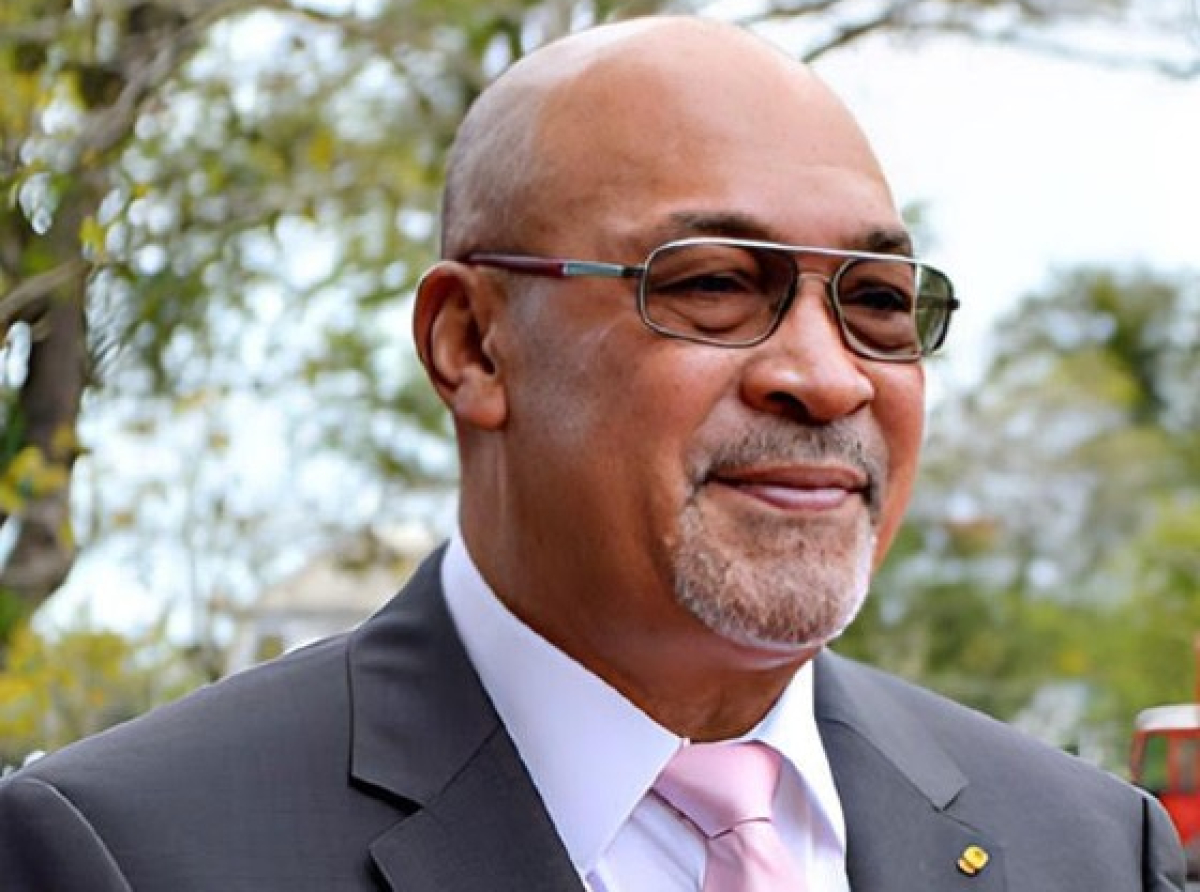International Arrest Warrant Issued For Former Suriname President Desi Bouterse

PARAMARIBO, Suriname – The Public Prosecution Service in Suriname says it is in the process of issuing an international arrest warrant for former president, Desi Bouterse, after he failed for a second time to report to a local prison to begin serving his 20-year jail sentence for murder.
The whereabouts of Bouterse, 78, remain a mystery after he first failed to keep his scheduled appointment last Friday to report to the prison in Santo Boma just south of the capital Paramaribo.
Another of the convicted men, Iwan Dijksteel, 68, has also failed to report to prison.
“Following a written request dated January 16, 2024 from Mr (Irvin) Kanhai, lawyer for the convicted Bouterse and Dijksteel, the Public Prosecution Service had a conversation with him. The content of the conversation gave reason to agree to the request that the convicted Bouterse could register at the Zorghotel for health reasons. The Public Prosecution Service set a deadline for registration of January 16, 2024 at 6.00 p.m,” the authorities said.
Bouterse, who was not present when the Court of Justice had issued the ruling last month, had appealed against his conviction that had been handed down in August 2021, when the Court Martial of Suriname upheld the 2019 military court ruling of a 20-year-jail term following a trial that had been going on for several years.
In 2017, Bouterse along with 23 co-defendants appeared in the military court after the Court of Justice had earlier rejected a motion to stop the trial. The former military officers and civilians had been charged with the December 8, 1982, murders of the 15 men that included journalists, military officers, union leaders, lawyers, businessmen and university lecturers.
The prosecution had alleged that the men were arrested on the nights of December 7 and 8, and transferred to Fort Zeelandia, the then headquarters of the Surinamese National Army. They said the men were tortured and summarily executed.
Three of the co-convicted retired soldiers, Ernst Gefferie, 81, Stephanus Dendoe 68 and Benny Brondenstein 68, all reported to prison.
Police in the Dutch-speaking Caribbean Community (CARICOM) country have since launched a search for both Bouterse and Dijksteel, even as the main opposition National Democratic Party (NDC) , which the former president heads, maintains that the trial was political and directed by The Netherlands.
This was also emphasized last Friday at his residence by his wife Ingrid Bouterse-Waldring and board members of his party, where supporters had gathered to express moral support for their leader in case he went to prison.
His wife told supporters and the press that her husband was not at home, that she did not know his whereabouts and had not spoken to him for several days.
She further said that Bouterse would not go to prison.
“The Attorney General has now ordered the arrest of both convicts. Internationally, this will also be done by Interpol,” according to a statement from the Public Prosecution Service.
Kanhai, later said in a radio interview that he is currently not communicating directly with the former president but through an intermediary and that Bouterse, a former commander of the Surinamese army, may therefore not have received the message to register.
The criminal case against Bouterse and more than 20 suspects at the time began in 2000 when relatives of the victims filed a petition with the Court of Justice stopping the limitation period for prosecution.
The Court ordered a preliminary judicial investigation, after which the criminal hearings by the Court Martial began in November 2007. From the beginning, lawyers, using legal options, have used delaying tactics to drag out the process.
After Bouterse came to power in 2010 through democratic elections, parliament passed an amnesty law in 2012 to provide him with impunity. However, this law was rejected by the Court. An attempt by then president Bouterse to instruct the Attorney General to stop the prosecution on the basis of Article 148 of the Constitution was also annulled by the Court. According to the president, the criminal case posed a threat to state security.
Ultimately, the Constitutional Court annulled the amnesty law in 2021, saying it was contrary to the Constitution and international human rights treaties to which Suriname is a party.


